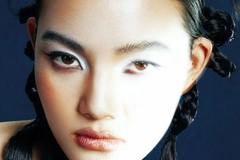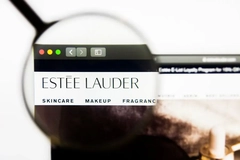Lycored study highlights consumer desire for diversified skincare

08 Dec 2021 --- Lycored, a leading manufacturer of ingestible skincare supplements, has released a large study demonstrating that beauty needs vary greatly based on skin tone. The science-backed brand released the study to further investigate consumer concerns.
Lycored conducted the online survey among 1,285 consumers; 760 in the UK and 525 in the US. Each participant had purchased a product in Lycored’s skin health line within the past year.
The study asked participants to categorize themselves into five different skin categories; dark brown or black; brown; light brown; white - darker; and white - pale or fair. Participants were then asked about their skincare goals. Lycored’s study highlights a need for more inclusive skincare.
Lycored’s study highlights a need for more inclusive skincare.

Results
Of the UK participants, 34% of those with “pale or fair” skin reported UV protection as a concern when selecting beauty products. This is in contrast to UK respondents within the darkest skin category; only 17% were concerned with UV protection. This reflects common misconceptions about darker skin, and may change with greater awareness of the UV sensitivity of darker skin.
Participants within the darkest skin category reported “healthy glow/radiance” as a primary goal. Among US participants, 67% of those self-categorized as “dark brown or black” reported this as a major concern. In contrast, 51% of US participants shared the same skincare focus.
US consumers with dark brown or black skin also reported a greater inclination to purchase products that are personalized for their skin tone (73%). Only a slight majority (54%) of US consumers with white skin (darker & pale or fair) reported the same.
The difference between these groups may be explained by the market’s tendency to overlook consumers with darker skin. This has meant that consumers with darker skin often seek personalized products due to necessity. In the UK, 74% of participants with dark brown or black skin reported difficulty in finding suitable beauty products. A minority (26%) of UK consumers with white skin reported the same.
Certain brands such as Vitality have recently launched campaigns calling for the better inclusion of darker skinned people within the beauty industry.
Changing times
Despite these numbers, a majority of US participants overall (62%) expressed optimism in the beauty industry’s diversity efforts. This hope is not unfounded; a growing number of brands are embracing diversity and inclusivity in marketing and product formulation. Within the beauty industry, diverse and inclusive practices are becoming an economic necessity.
“Embracing diversity is no longer optional and brands are working much harder to meet the needs of all their customers,” says Zev Ziegler, head of global brand and marketing, health for Lycored.A majority of US participants felt positive about recent trends toward inclusivity within the beauty industry.
Rethinking beauty
Lycored launched its #rethinkbeautiful campaign with the aim of challenging traditional beauty standards and promote self-acceptance. As manufacturers of internal beauty supplements, the brand wants to take the focus off of beauty products that solely target the external. Lycored believes that its approach represents opportunities for greater inclusivity within the beauty industry.
“Our research shows that ingestible beauty products can offer a powerful possible platform for true inclusivity, adding to the ways the industry can strive to meet the beauty needs of everyone,” Ziegler says.
Lycored previously released a study investigating a heightened interest in beauty and nutritional products as a result of the pandemic.
Edited by Olivia Nelson













